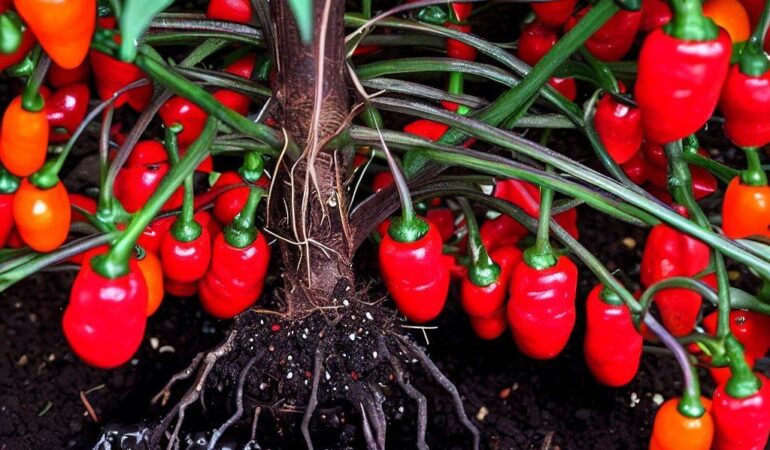
Nature’s Soil Booster
Agriculture and sustainable farming practices are evolving, and at the heart of this green revolution lies an unsung hero: Leonardite. Known for its rich humic content and transformative properties, Leonardite has become a cornerstone of modern soil health solutions. In this blog, we’ll dive deep into what Leonardite is, its benefits, and how it can revolutionize the way we grow.
What is Leonardite?
Leonardite is a highly oxidized form of lignite (soft coal) and is rich in humic substances, primarily humic and fulvic acids. It is formed over millions of years from decomposed organic matter, creating a mineral-rich substance that acts as a natural soil conditioner.
While Leonardite is not a fertilizer, it amplifies the effectiveness of fertilizers and improves soil health, making it a valuable addition to agricultural, horticultural, and environmental applications.
The Science Behind Leonardite
The power of Leonardite lies in its humic and fulvic acids, which are key components for improving soil structure and fertility. Here’s how these substances work:
- Humic Acids: They improve soil’s water retention, enhance nutrient absorption, and stimulate microbial activity.
- Fulvic Acids: These are smaller molecules that can penetrate plant cells, helping transport nutrients and boosting plant metabolism.
Together, these compounds create a healthy soil environment, enabling plants to thrive.
Benefits of Leonardite
1. Improves Soil Structure
Leonardite enhances soil texture, aeration, and drainage while increasing its water-holding capacity. This is particularly beneficial for sandy soils that struggle to retain water or for compacted soils that lack proper air circulation.
2. Enhances Nutrient Availability
As a natural chelating agent, Leonardite binds with essential nutrients like calcium, magnesium, and iron, making them more readily available to plants. This reduces nutrient leaching and ensures plants receive a steady supply of vital elements.
3. Boosts Microbial Activity
Leonardite stimulates the growth of beneficial soil microorganisms, which play a critical role in breaking down organic matter and cycling nutrients. A thriving microbial population leads to healthier, more productive soils.
4. Promotes Root Development
The humic and fulvic acids in Leonardite encourage deeper, stronger root growth, allowing plants to access nutrients and water more efficiently.
5. Balances Soil pH
Leonardite can neutralize acidic or alkaline soils, creating an optimal pH environment for plant growth. This makes it a versatile solution for a wide range of soil types.
6. Reduces Fertilizer Dependence
By improving the efficiency of fertilizers, Leonardite allows farmers to use less while achieving better results. This reduces costs and minimizes the environmental impact of chemical fertilizers.
Applications of Leonardite
Leonardite is incredibly versatile and can be used in various ways:
- Soil Amendment: Spread directly on fields or gardens to improve soil quality and fertility.
- Liquid Humic Acid: Processed into a liquid form for foliar sprays or irrigation systems, making it easier to apply in precision agriculture.
- Fertilizer Additive: Mixed with nitrogen, phosphorus, and potassium fertilizers to enhance their efficiency.
- Composting: Added to compost piles to accelerate decomposition and enrich the resulting material.
- Soil Remediation: Used in contaminated soils to bind heavy metals and pollutants, restoring soil health.
Leonardite and Sustainable Agriculture
As the world shifts toward sustainable farming practices, Leonardite is gaining recognition as a key tool in achieving long-term soil health. Its ability to reduce fertilizer dependence, improve water use efficiency, and enhance soil fertility aligns perfectly with the goals of regenerative agriculture.
- Eco-Friendly: Leonardite is a natural, organic product that reduces the need for chemical inputs.
- Long-Term Benefits: Unlike synthetic solutions, Leonardite improves soil health over time, ensuring sustainable productivity.
- Global Relevance: From arid regions to fertile farmland, Leonardite is adaptable to various climates and soil conditions.
How to Use Leonardite Effectively
To maximize the benefits of Leonardite, it’s important to use it correctly. Here are some guidelines:
- Determine the Right Application Rate: Depending on soil type and crop needs, consult with an agronomist or soil expert to decide the optimal amount.
- Combine with Fertilizers: Use Leonardite as a complementary product to enhance the effectiveness of fertilizers.
- Use in Liquid Form: For precision applications, use liquid humic acid derived from Leonardite for foliar sprays or irrigation systems.
- Incorporate into Compost: Blend Leonardite into compost to create nutrient-rich organic matter for your soil.
Leonardite in Action: Success Stories
Farmers and gardeners worldwide have witnessed remarkable results with Leonardite. Here are a few examples:
- Increased Crop Yields: Farmers using Leonardite have reported higher yields, especially in nutrient-deficient soils.
- Improved Drought Resistance: Plants grown in Leonardite-treated soil show better water retention and are more resilient to dry conditions.
- Healthier Lawns and Gardens: Homeowners have noticed lush, green lawns and vibrant garden plants with Leonardite applications.
Conclusion: The Future of Soil Health
Leonardite is more than just a soil conditioner; it’s a sustainable solution for improving soil health, boosting plant growth, and reducing environmental impact. Whether you’re a commercial farmer, landscaper, or gardening enthusiast, incorporating Leonardite into your practices can lead to long-term success.
As we strive for a greener, more sustainable future, Leonardite will continue to play a pivotal role in transforming the way we grow. Ready to experience its benefits? Explore our Leonardite-based products today and give your soil the care it deserves.
